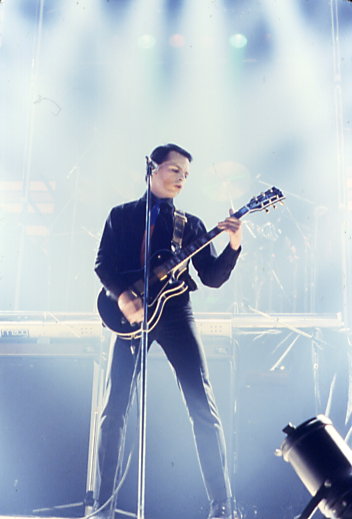|
Gymnopédies (Satie)
The ''Gymnopédies'' (), or ''Trois Gymnopédies'' ('Three Nude Dances"), are three piano compositions written by French composer and pianist Erik Satie. He completed the whole set by 2 April 1898, but they were at first published individually: the first and the third in 1888, the second in 1895. History The work's unusual title comes from the French form of gymnopaedia, the ancient Greek word for an annual festival where young men danced either naked or, perhaps figuratively, simply unarmed. The source of the title has been a subject of debate. Satie and his friend Alexis Roland-Manuel maintained that he adopted it after having read Gustave Flaubert's novel ''Salammbô'', while others see a poem by J. P. Contamine de Latour as the source of Satie's inspiration, since the first ''Gymnopédie'' was published in the magazine ''La Musique des familles'' in the summer of 1888 together with an excerpt of Latour's poem ''Les Antiques'', where the term appears. It remains un ... [...More Info...] [...Related Items...] OR: [Wikipedia] [Google] [Baidu] |
Furniture Music
Furniture music, or in French (language), French ''musique d’ameublement'' (sometimes more literally translated as ''furnishing'' music), is background music originally played by live performers. The term was coined by Erik Satie in 1917. Satie's compositions The music Although other selections of Erik Satie's music can be experienced (and are sometimes indicated) as furniture music, Satie himself applied the name only to five short pieces, composed in three separate sets: * 1st set (1917), for flute, clarinet and string instrument, strings, plus a trumpet for the first piece: ** 1. ''Tapisserie en fer forgé'' – pour l'arrivée des invités (grande réception) – À jouer dans un vestibule – Mouvement: ''Très riche'' (Tapestry in forged iron – for the arrival of the guests (grand reception) – to be played in a vestibule – Movement: Very rich) ** 2. ''Carrelage phonique'' – Peut se jouer à un lunch ou à un contrat de mariage – Mouvement: ''Ordinaire'' (Phonic ... [...More Info...] [...Related Items...] OR: [Wikipedia] [Google] [Baidu] |
Jane's Addiction
Jane's Addiction was an American Rock music, rock band formed in Los Angeles in 1985. The band's best known line-up consisted of lead vocalist Perry Farrell, bassist Eric Avery, drummer Stephen Perkins and guitarist Dave Navarro. Jane's Addiction was one of the first bands from the early 1990s alternative rock movement to gain commercial success. Founded by Farrell and Avery following the disintegration of Farrell's previous band Psi Com, Jane's Addiction's first release was Jane's Addiction (album), their self-titled live album in 1987, which caught the attention of Warner Bros. Records. Their first two studio albums, ''Nothing's Shocking'' (1988) and ''Ritual de lo Habitual'' (1990), received acclaim and grew a cult following, cult fanbase. As a result, Jane's Addiction became a significant part of what Farrell dubbed the "alternative rock, alternative nation'" The band's first farewell tour in 1991 launched the first Lollapalooza. In 1997, Jane's Addiction reunited, with F ... [...More Info...] [...Related Items...] OR: [Wikipedia] [Google] [Baidu] |
We Are Glass
"We Are Glass" is a song by the English new wave musician Gary Numan. It was released as a single in May 1980 and reached number five on the UK Singles Chart. The song was Numan's first release since his 1979 album, '' The Pleasure Principle'', which had been notable in part for its complete absence of guitars. Though the album was a major commercial success, Numan decided that "getting rid of guitars had been a mistake" and brought them back into the studio for his next project. The recording also featured viola, piano, and a newly expanded array of electronic keyboards, including ARP Pro Soloist and Roland Jupiter-4, to augment the Moog synthesizers of previous releases. Originally released on single only, "We Are Glass" reached number 5 on the UK charts in May 1980. The B-side was one of Numan's few non-original pieces, the first movement of Erik Satie's " Trois Gymnopedies," in an arrangement that added guitar, bass and synthesizer to the original's solo piano part. "We Ar ... [...More Info...] [...Related Items...] OR: [Wikipedia] [Google] [Baidu] |
Gary Numan
Gary Anthony James Webb (born 8 March 1958), known professionally as Gary Numan, is an English singer, songwriter and musician. He entered the music industry as frontman of the New wave music, new wave band Tubeway Army. After releasing two studio albums with the band, he released his debut solo studio album ''The Pleasure Principle (album), The Pleasure Principle'' in 1979, topping the UK Albums Chart. His commercial popularity peaked in the late 1970s and early 1980s with hits including "Are "Friends" Electric?, Are 'Friends' Electric?" and "Cars (song), Cars" (both of which reached number one on the UK singles chart). Numan maintains a cult following. He has sold over 10 million records. Numan is regarded as a pioneer of electronic music. He developed a signature sound consisting of heavy synthesizer Hook (music), hooks fed through guitar Effects unit, effects pedals, and is also known for his distinctive voice and Androgyny, androgynous "android" persona. He received an Ivo ... [...More Info...] [...Related Items...] OR: [Wikipedia] [Google] [Baidu] |
Sir James Galway
Sir James Galway (born 8 December 1939) is an Irish virtuoso flute player from Belfast, nicknamed "The Man with the Golden Flute". After several years working as an orchestral musician, he established an international career as a solo flute player. In 2005, he received the Brit Award for Outstanding Contribution to Music at the Classic Brit Awards. Early life Galway was born in North Belfast as one of two brothers. His father, who played the flute, was employed at the Harland & Wolff shipyard until the end of the Second World War and spent night-shifts cleaning buses after the war, while his mother, a pianist, was a winder in a flax-spinning mill. Raised as a Presbyterian and surrounded by a tradition of flute bands and many friends and family members who played the instrument, he was taught the flute by his uncle at the age of nine and joined his fife and drum corps. At the age of eleven Galway won the junior, senior, and open Belfast flute Championships in a single day. His f ... [...More Info...] [...Related Items...] OR: [Wikipedia] [Google] [Baidu] |
Dame Cleo Laine
Dame Cleo Laine, Lady Dankworth (born Clementine Dinah Hitching; 28 October 1927) is an English singer and actress known for her scat singing. She is the widow of jazz composer and musician Sir John Dankworth and the mother of bassist Alec Dankworth and singer Jacqui Dankworth. Early life Laine was born Clementine Dinah Hitching on 28 October 1927, in Southall, Middlesex (now London), to Alexander Sylvan Campbell, a Jamaican who worked as a building labourer and regularly busked, and Minnie Bullock, an English farmer's daughter from Swindon, Wiltshire, whose maiden name was reportedly Hitching. The family moved constantly, but most of Laine's childhood was spent in Southall. It was not until 1953, when she was 26 and applying for a passport for a forthcoming tour of Germany, that Laine found out her real birth name, owing to her parents not being married at the time and her mother registering her under her own name (Hitching). Education Laine attended the Board school on Fe ... [...More Info...] [...Related Items...] OR: [Wikipedia] [Google] [Baidu] |
Grammy Award
The Grammy Awards, stylized as GRAMMY, and often referred to as The Grammys, are awards presented by The Recording Academy of the United States to recognize outstanding achievements in music. They are regarded by many as the most prestigious and significant awards in the music industry in the United States, and thus the show is frequently called "music's biggest night". The trophy depicts a gilded gramophone, and the original idea was to call them the "Gramophone Awards". The Grammys are the first of the Big Three networks' major music awards held annually, and are considered one of the four major annual American entertainment awards with the Academy Awards (for films), the Emmy Awards (for television), and the Tony Awards (for theater). The first Grammy Awards ceremony was held on May 4, 1959, to honor the musical accomplishments of performers for the year 1958. After the 2011 ceremony, the Recording Academy overhauled many Grammy Award categories for 2012. The 67th Ann ... [...More Info...] [...Related Items...] OR: [Wikipedia] [Google] [Baidu] |
12th Grammy Awards
The 12th Annual Grammy Awards were held on March 11, 1970. They recognized accomplishments of musicians for the year 1969. Award winners *Record of the Year **Bones Howe (producer) & The 5th Dimension for "Aquarius/Let the Sunshine In" * Album of the Year **James William Guercio (producer) & Blood, Sweat & Tears for ''Blood, Sweat & Tears'' * Song of the Year **Joe South for " Games People Play" *Best New Artist **Crosby, Stills & Nash Children's * Best Recording for Children **Peter, Paul and Mary for '' Peter, Paul and Mommy'' Classical * Best Classical Performance, Orchestra **Pierre Boulez (conductor) & the Cleveland Orchestra for ''Boulez Conducts Debussy, Vol. 2 "Images Pour Orchestre"'' * Best Vocal Soloist Performance, Classical **Thomas Schippers (conductor), Leontyne Price & the New Philharmonia for ''Barber: Two Scenes From "Antony and Cleopatra"/Knoxville, Summer of 1915'' * Best Opera Recording ** Otto Gerdes (producer), Herbert von Karajan (conductor), Helga Derne ... [...More Info...] [...Related Items...] OR: [Wikipedia] [Google] [Baidu] |
Blood, Sweat & Tears (Blood, Sweat & Tears Album)
''Blood, Sweat & Tears'' is the second album by the American band Blood, Sweat & Tears, released on December 11, 1968. It was the most commercially successful album for the group, rising to the top of the U.S. charts for a collective seven weeks and yielding three successive Top 5 singles. It received a Grammy Award for Album of the Year in 1970. The album has been certified quadruple platinum by the RIAA, with sales of more than four million units in the U.S. In Canada, the album enjoyed a total of eight weeks at number 1 on the ''RPM'' national album chart. History Al Kooper, Randy Brecker and Jerry Weiss had left BS&T after the first album. Founding members Bobby Colomby and Steve Katz searched for a replacement singer and selected David Clayton-Thomas. Three more musicians joined to bring the band to a total of nine members. Columbia assigned James William Guercio as producer for the album. Guercio was simultaneously working with the band Chicago. "More and More", "Smiling ... [...More Info...] [...Related Items...] OR: [Wikipedia] [Google] [Baidu] |
Blood, Sweat & Tears
Blood, Sweat & Tears (also known as "BS&T") is an American jazz rock music group founded in New York City in 1967, noted for a combination of brass with rock instrumentation. BS&T has gone through numerous iterations with varying personnel and has encompassed a wide range of musical styles. Their sound has merged rock, pop and R&B/soul music with big band jazz. The group's self-titled second album spent seven weeks atop the U.S. charts in 1969 and won the Grammy Award for Album of the Year in 1970. It contained the hit recordings " And When I Die", " You've Made Me So Very Happy", and " Spinning Wheel". All of these peaked at number two on the ''Billboard'' Hot 100. The follow-up album, '' Blood, Sweat & Tears 3'', also reached number one in the U.S. In addition to original music, the group is known for arrangements of popular songs by Laura Nyro, James Taylor, Carole King, the Band, the Rolling Stones, Billie Holiday and many others. The group has also adapted music fro ... [...More Info...] [...Related Items...] OR: [Wikipedia] [Google] [Baidu] |
Dick Halligan
Richard Bernard Halligan (August 29, 1943 – January 18, 2022) was an American musician and composer, best known as a founding member of the jazz-rock band Blood, Sweat & Tears. Career Halligan was born in Troy, New York. He was BS&T's trombonist on their first album, '' Child Is Father to the Man'', but when Al Kooper left the band after that first album, Halligan switched to keyboards and began playing flute as well. He received a Grammy Award for Best Instrumental Performance for "Variations on a Theme By Erik Satie" from the album ''Blood, Sweat & Tears''. Halligan also arranged many of the band's charts during this time period, and he wrote several songs including "Redemption" and "Lisa Listen to Me." Halligan left BS&T in 1971 after recording their fourth album, when the band began to shift to more rock-oriented music. In the 1970s and 1980s, Halligan composed and arranged music for a number of motion pictures, including '' Go Tell the Spartans'' (1978), '' Cheaper to ... [...More Info...] [...Related Items...] OR: [Wikipedia] [Google] [Baidu] |







